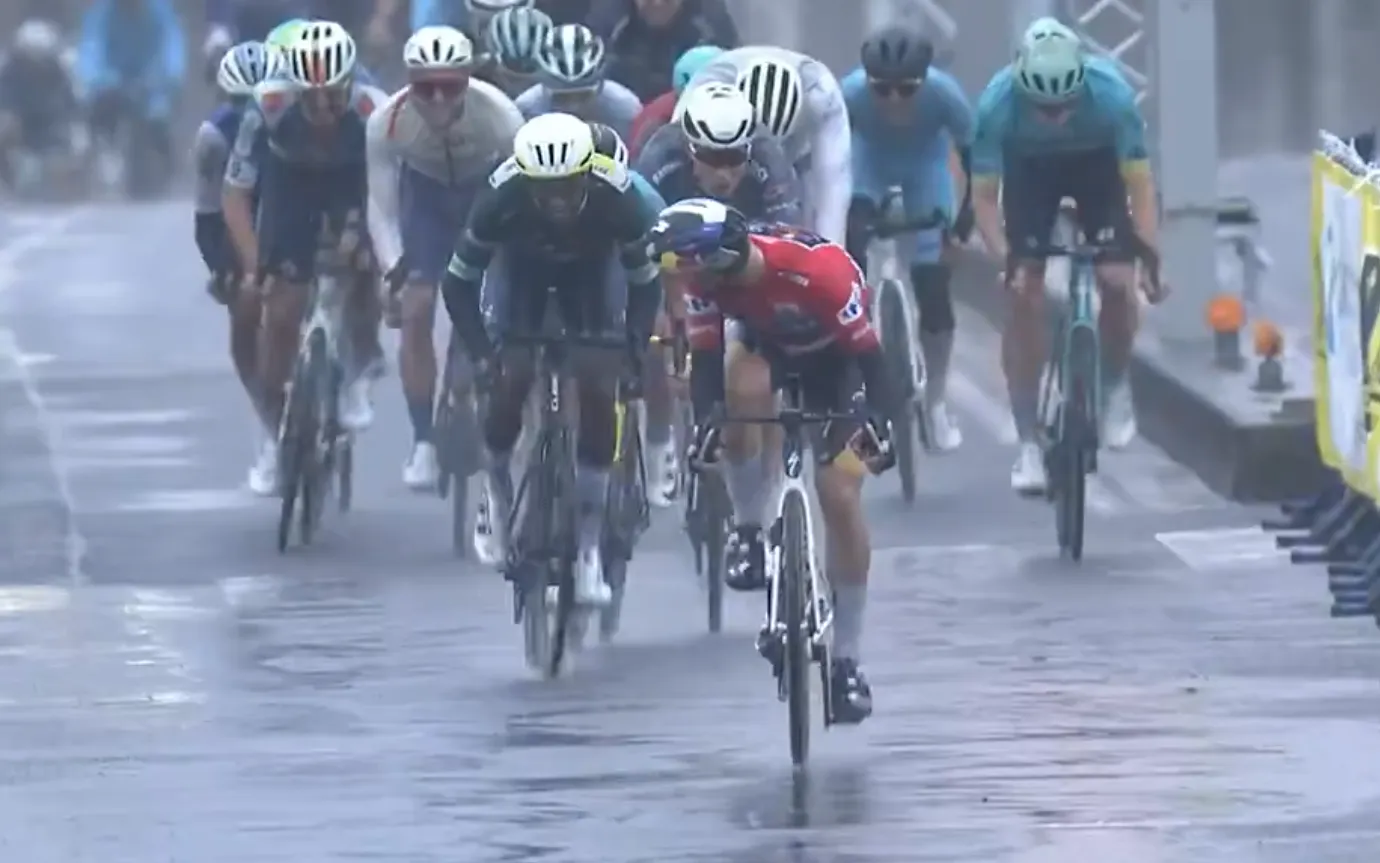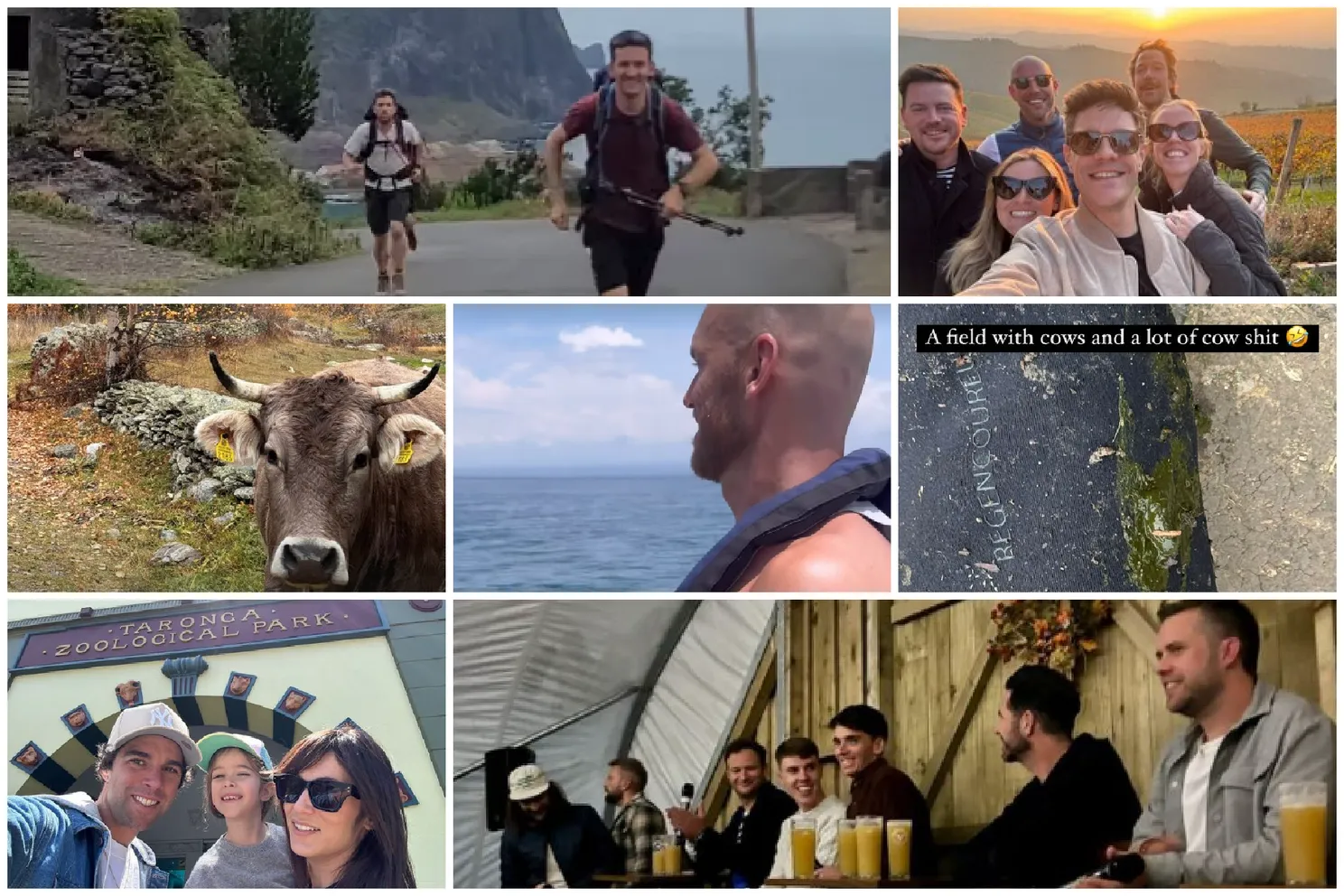From laughingstock team to Kittel's sprints and a Giro victory: Simon Geschke witnessed Sunweb's transformation up close
CyclingTuesday, 05 November 2024 at 11:47
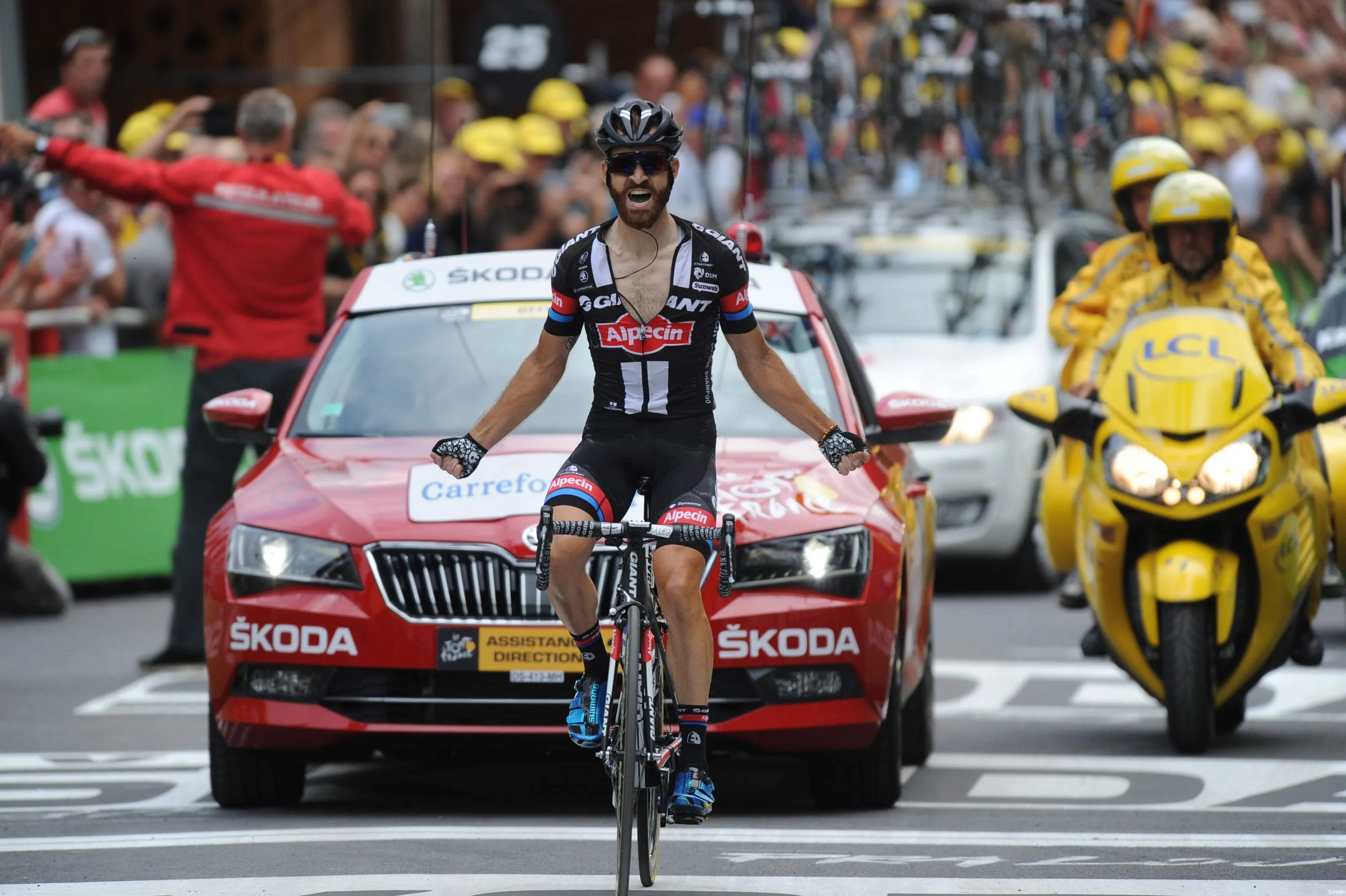
The 2024 cycling season has come to an end, and that means we have to say goodbye to many beloved names in the sport. One of them is Simon Geschke, the 38-year-old German who spent his final years racing for Cofidis. However, for most of his career, the all-rounder was a vital part of the rise of Argos-Shimano. IDLProCycling.com takes one last look back at Geschke's career.
ADVERTISEMENT
In the 2013 Tour de France, the Argos-Shimano team shone brightly. Marcel Kittel won four stages, and the team, dressed in white, was a well-oiled machine when it came to the sprint train. Koen de Kort, Albert Timmer, Roy Curvers and John Degenkolb positioned their teammate perfectly for the finish. Kittel was the star of that Tour, while Simon Geschke and Tom Dumoulin played a role in the background.
The success and preparation were beautifully captured in the Dutch documentary Nieuwe Helden, which translates to new heroes. Kittel was the showpiece, stealing the show during that Tour in a somewhat theatrical way. Degenkolb was his close friend and healthy rival within the team. A young, inexperienced Dumoulin made only a brief appearance in the documentary, while the shy, 27-year-old Geschke took an anonymous place at the table. It was a unique look behind the scenes of the Dutch team, which thrived on sprint success. However, Geschke and Dumoulin would slowly shift the team’s focus in the years to come.
ADVERTISEMENT
Read more below the photo.
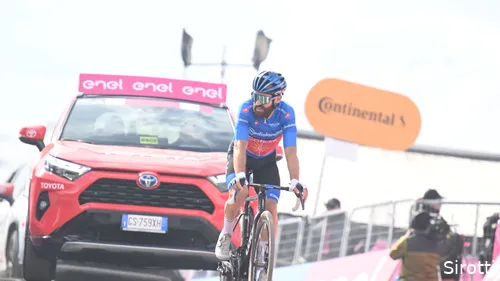
Simon Geschke in his later years: chasing mountain jerseys, here in the Giro
Laughingstock team around Van Hummel and years on the bench: Geschke also experienced the growing pains of Argos and Sunweb
ADVERTISEMENT
The story of Argos-Shimano, later Sunweb, is essentially the story of Simon Geschke. At the end of 2008, Iwan Spekenbrink took over the largely Asian team, which entered the peloton in 2009 as Skill-Shimano. Everything was new, but the expectations were high. Skill went straight to the Tour in 2009, where almost everything went wrong. In the edition won by Alberto Contador, inexperienced lead-out rider Piet Rooijakkers clashed with Mark Cavendish, and Kenny van Hummel struggled in the mountains, fighting against the time limit at every turn.
Van Hummel became the symbol of the mismatch between Skill and the Tour. The French promptly dubbed him the worst climber to ever ride the famous race. The team was not in contention for stage wins and played no role of significance in the race’s outcome. Riders like Timmer and De Kort were also part of the French roster that year, as was a 23-year-old Geschke, who finished 113th.
For understandable reasons, Team Skill-Shimano did not contend in the grand tours in 2010, but this did not discourage Spekenbrink. He quietly worked on laying the foundations of a team that truly wanted to be a team, with a strong anti-doping stance and a carefully built close-knit collective. In 2011, the team competed in the Vuelta, where young German sprinter Kittel won the seventh stage. It was the breakthrough the team needed to find its path to the top.
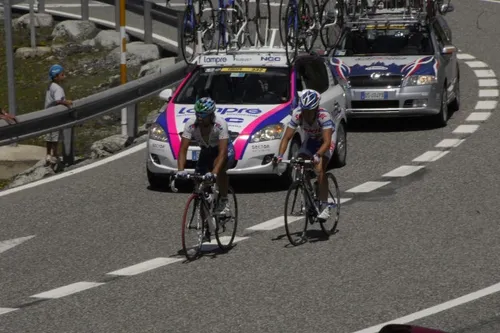
The defining image of Skill-Shimano's first Tour: Kenny van Hummel battling the time limit
Greipel and Cavendish are dethroned by Kittel’s modest sprint train, with Geschke as constant factor and sudden leader in the mountains
ADVERTISEMENT
In the 2012 Tour, Argos-Shimano, as the team was now known, returned to France as a WorldTour team. However, Kittel fell ill and could not compete for the prizes. In that summer’s Vuelta, where Geschke again took part, Degenkolb won no fewer than five stages. This edition symbolized the new sprint train that would challenge riders like Mark Cavendish and André Greipel in the coming years.
In 2013, the strength of this sprint train became clear. Cavendish, Greipel, and even Peter Sagan took a back seat that summer, as Kittel won the first stage in Corsica and claimed the yellow jersey. Geschke was there as a compatriot and teammate, serving as road captain to set up the sprints. Argos-Shimano was on cloud nine, symbolizing a new, playful approach to cycling. The doping Tours were forgotten, and the team showed that it was possible to bring new life to the race with modest means and spirit.
The success continued in 2014, after which Giant-Shimano set a new course in 2015. With the development of young climbers like Dumoulin and Warren Barguil, the focus gradually shifted toward climbing. Kittel left, but Geschke stayed. He himself became an example of the team’s broader horizon that year, shining unexpectedly in a grueling, highly coveted mountain stage in the Tour de France.
A breakaway group, including Andrew Talansky and Thibaut Pinot, raced through the Alps over the Col d'Allos. On that mountain, Geschke attacked, seemingly a sitting duck for the stronger climbers behind him. But the German had an exceptional day, completing the final climb to Pra Loup with ease. Stage 17 of the Tour was his, on the mountain where Eddy Merckx once met his Waterloo in his quest for a sixth Tour victory. It was an emotional victory for Geschke, celebrating just his third (and by far most significant) pro win of his career.
Read more below the video
ADVERTISEMENT
Geschke gave Dumoulin a final push on the hardest day towards Giro victory in 2017
The team’s development continued in the following years. Sprinters were no longer riding for the team, now known as Sunweb. The team became a group of free spirits, with Geschke taking a free role, especially in one-day races. He achieved top ten finishes in the Amstel Gold Race and Flèche Brabançonne, while the team worked on a plan to make Dumoulin shine in the grand tours — a plan in which Geschke was also involved.
In the spring of 2017, the Sunweb team was not exactly overflowing with climbing talent. But when Dumoulin claimed the pink jersey after ten stages, the team had to step up in the mountains. Laurens ten Dam often served as Dumoulin’s last man standing, but on Dumoulin’s toughest day in the Giro, during the stage to Piancavallo, it was Geschke who helped him halfway up the final climb.
The seconds Geschke gained for Dumoulin on Piancavallo proved crucial. Dumoulin limited his losses and managed to distance his competitors enough on the final day to secure the pink jersey. In Milan, a special celebration followed as Dumoulin invited his teammates to join him on the podium. There, the winner and his helpers, including Geschke, stood together beside the trofeo senza fine, the ultimate image of the team’s identity: this victory belonged to all the riders, as they had won the Giro together. It was the ultimate achievement, one that Spekenbrink had long envisioned.
Read more below the photo.
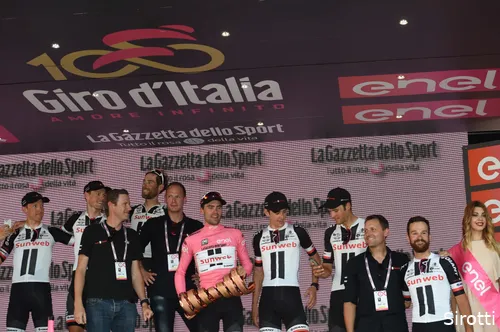
The Giro-winning team with Dumoulin, with Geschke on the far right of the photo
Outpaced by time: Geschke's failed mountain jersey hunt symbolizes the new generation in cycling
2018 marked the last time Geschke served as a loyal helper for Dumoulin's GC ambitions in the Tour. Dumoulin finished second, but Geschke left at the end of the season to join CCC in pursuit of his own ambitions. For Dumoulin, as he later described in his Dutch biography Op Gevoel, this was an incomprehensible decision and the trigger for him to leave Sunweb himself after 2019.
In the final years of his career, starting in 2021 with Cofidis, Geschke continued to show his versatility. Breakaways, short general classifications (podium finishes in the Tour of Romandie and the Tour Down Under), and the pursuit of mountain jerseys defined his approach. In the 2022 Tour, he wore the polka dot jersey up until the final mountain stage, but yellow jersey winner Jonas Vingegaard dethroned him in the final climb to Hautacam.
The loss brought tears to the bearded German, who watched a major prize slip away to the overall winner of the Tour. It was a recurring outcome in recent years, as even the secondary jerseys were claimed by the sport’s biggest stars. In 2024, at the age of 38, Geschke still finished a respectable 14th in the Giro, but he was never as at home as he was during his Sunweb years.
From laughingstock team to grand tour winners. Simon Geschke was there to witness a truly remarkable transformation of Skill, Argos and Sunweb. Farewell, Simon!
Read also
IDL-productions
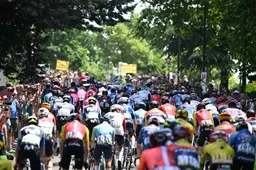
Vacancy: Growth Editor IDL Procycling - (native) English
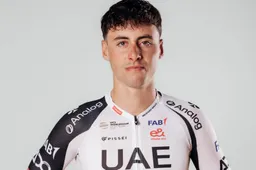
UAE top talent faces important and busy spring, already picks out Giro stage and recalls 'heart-stopping' moment
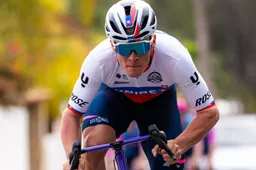
Unibet Rose Rockets revelation Lukáš Kubiš raises the bar even higher for 2026
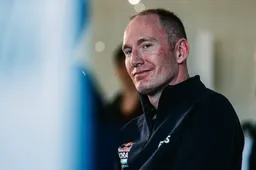
Red Bull-BORA-hansgrohe hints at different approach with Pithie and Tim and Mick van Dijke: 'We don't have Boonen, Sagan or Van der Poel'
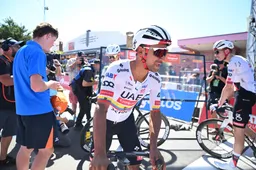
Favorites stage 2 Tour Down Under 2026 | UAE and Narváez will want to hurt Visma and Brennan
Latest Cycling News

Vacancy: Growth Editor IDL Procycling - (native) English
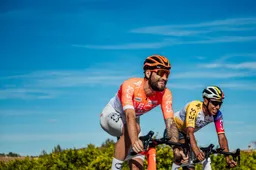
Filippo Ganna has Milan-San Remo as major goal, but is already working on a much bigger dream
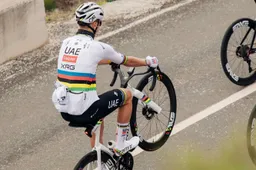
Tour Down Under almost featured Tadej Pogačar, organisers left frustrated by near miss
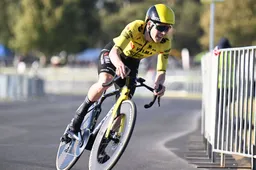
New signing Anton Schiffer (26) immediately seizes his opportunity at Visma | Lease a Bike

UAE top talent faces important and busy spring, already picks out Giro stage and recalls 'heart-stopping' moment
Popular Cycling News
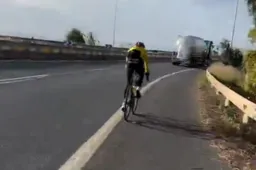
🎥 Whoosh! Vingegaard shows the difference between an ordinary person and a two-time Tour winner

Cycling news at your fingertips: Follow IDL Procycling everywhere!

Tour Down Under almost featured Tadej Pogačar, organisers left frustrated by near miss
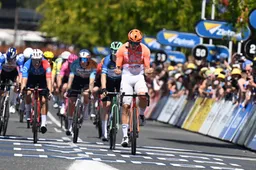
Visma | Lease a Bike pinpoints what went wrong with Brennan while winner Welsford is celebrating
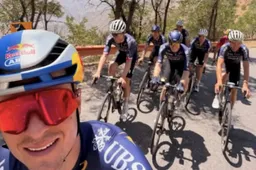
Belgians name big advantage of Chile trip with Pidcock: 'Not comparable to Europe'
Latest Comments
- Nice!Bea22-01-2026
- Those events are mental rest for him. Fun, without expectations. *Sagan lost his abilities because he gained weight and got lazy. Pogi will likely retire before that has a chance at happening.Veganpotter14-12-2025
- Ah, the consequences of riding for Israel.Veganpotter11-12-2025
- Pidcock could follow everyone but Pogi while finishing 3rd. No second place rider this season😃Veganpotter16-11-2025
- Now the Palestinian protestors can stop their whining. Trump came to the rescue. So they can now STFU and go back to waving the rainbow flags.raufus15-10-2025
- Cracked the code lol. If it was that easy to 'crack the code' jonny Vegas would be charging up the Kwaremont giving Pog a dose of his medicine. Evenepoel can't match pog on a climb and neither can mvdp. Anything with a half difficult climb and Pog smashes the field. Even on flat(ish)parcours like Roubaix it came down to a mistake and crash by pog to definitively crown mvdp. MSR is the only one that Pog probably won't win.kevpt10-10-2025
- We've seen this movie before. I think Pogacar is doping.DeadBlow10-10-2025
- 👍Bea08-10-2025
- 👌🏻Bea08-10-2025
- What the data doesn't show is how much of an effect drafting had for evenepoel. Pogacar went with del toro at 100km whilst Evenepoel was still in the bunch. Despite the bike changes he still had a lot of assistance getting back to the bunch. Pogacar then rode 60km solo whilst evenepoel rode with Healy/Skjelmose until going solo in thd last 10-15km. Thats ~20% less power / energy requirements for 45-50km. Apples and oranges...kevpt30-09-2025
Loading
